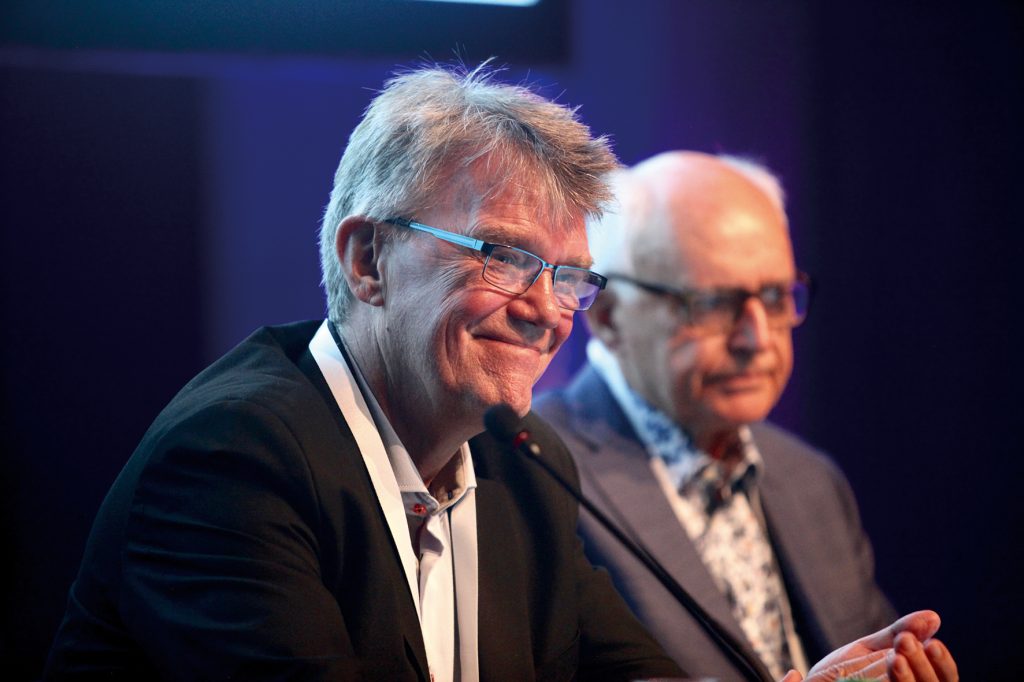EU registry of cornea transplants up and running
Data on 12,612 transplants from 12 countries already submitted for review

Priscilla Lynch
Published: Sunday, September 15, 2019
 Jesper Hjortdal and Mats Lundström, who presented an update on the ECCTR Registry[/caption]
THE European Cornea and Cell Transplantation Registry (ECCTR) is now up and running successfully, with data on 12,612 transplants from 12 countries already submitted for review, according to an update session during the EuCornea Congress yesterday.
The aim of the ECCTR is to build a common assessment methodology and establish an EU web-based registry and network for academics, health professionals and authorities to assess and verify the safety, quality and efficacy of corneal transplantation in ophthalmic surgery.
The registry is recording recipient characteristics, donor and eye bank processing data and transplant procedure information, with a two-year follow-up including survival, outcomes and complications.
To date, most recipients are between 70 and 79 years of age, with Fuchs’ dystrophy the leading indication for transplantation.
The project is a three-year programme, with evaluation and dissemination of the collected data and development of a European protocol to follow once recruitment of clinics is complete.
Speaking to EuroTimes, EuCornea President Jesper Hjortdal said he was pleased with the uptake so far, with more European countries now due to join, and others expressing an interest in engaging.
Jesper Hjortdal and Mats Lundström, who presented an update on the ECCTR Registry[/caption]
THE European Cornea and Cell Transplantation Registry (ECCTR) is now up and running successfully, with data on 12,612 transplants from 12 countries already submitted for review, according to an update session during the EuCornea Congress yesterday.
The aim of the ECCTR is to build a common assessment methodology and establish an EU web-based registry and network for academics, health professionals and authorities to assess and verify the safety, quality and efficacy of corneal transplantation in ophthalmic surgery.
The registry is recording recipient characteristics, donor and eye bank processing data and transplant procedure information, with a two-year follow-up including survival, outcomes and complications.
To date, most recipients are between 70 and 79 years of age, with Fuchs’ dystrophy the leading indication for transplantation.
The project is a three-year programme, with evaluation and dissemination of the collected data and development of a European protocol to follow once recruitment of clinics is complete.
Speaking to EuroTimes, EuCornea President Jesper Hjortdal said he was pleased with the uptake so far, with more European countries now due to join, and others expressing an interest in engaging.